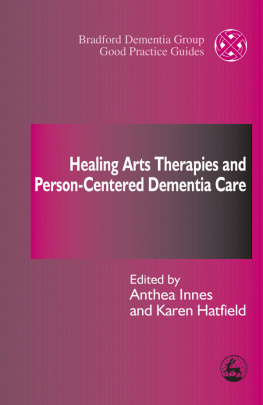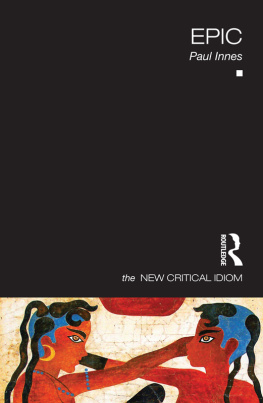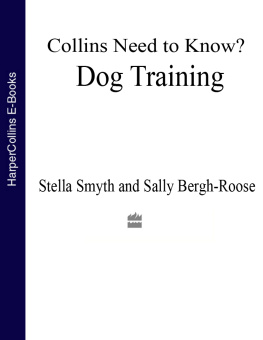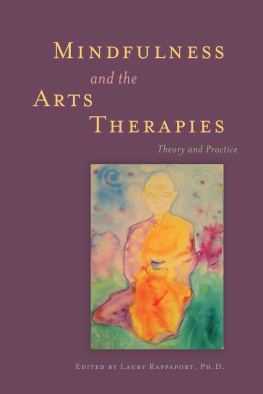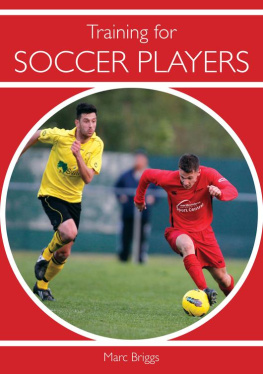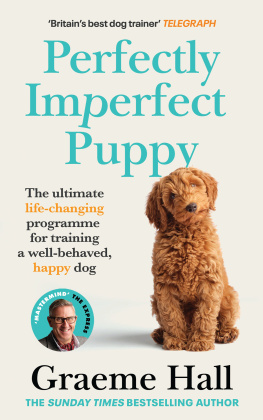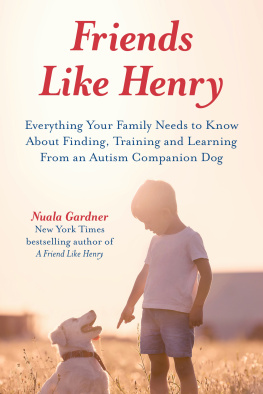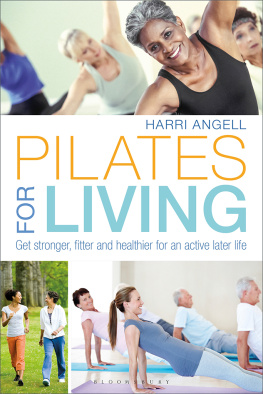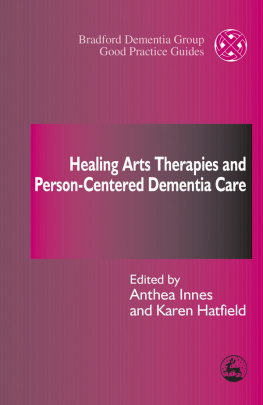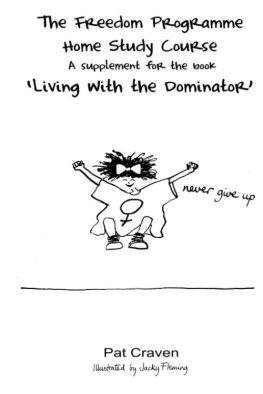Innes - Healing Arts Therapies and Person-Centered Dementia Care
Here you can read online Innes - Healing Arts Therapies and Person-Centered Dementia Care full text of the book (entire story) in english for free. Download pdf and epub, get meaning, cover and reviews about this ebook. publisher: Jessica Kingsley Publishers, genre: Home and family. Description of the work, (preface) as well as reviews are available. Best literature library LitArk.com created for fans of good reading and offers a wide selection of genres:
Romance novel
Science fiction
Adventure
Detective
Science
History
Home and family
Prose
Art
Politics
Computer
Non-fiction
Religion
Business
Children
Humor
Choose a favorite category and find really read worthwhile books. Enjoy immersion in the world of imagination, feel the emotions of the characters or learn something new for yourself, make an fascinating discovery.
- Book:Healing Arts Therapies and Person-Centered Dementia Care
- Author:
- Publisher:Jessica Kingsley Publishers
- Genre:
- Rating:5 / 5
- Favourites:Add to favourites
- Your mark:
- 100
- 1
- 2
- 3
- 4
- 5
Healing Arts Therapies and Person-Centered Dementia Care: summary, description and annotation
We offer to read an annotation, description, summary or preface (depends on what the author of the book "Healing Arts Therapies and Person-Centered Dementia Care" wrote himself). If you haven't found the necessary information about the book — write in the comments, we will try to find it.
Innes: author's other books
Who wrote Healing Arts Therapies and Person-Centered Dementia Care? Find out the surname, the name of the author of the book and a list of all author's works by series.
Healing Arts Therapies and Person-Centered Dementia Care — read online for free the complete book (whole text) full work
Below is the text of the book, divided by pages. System saving the place of the last page read, allows you to conveniently read the book "Healing Arts Therapies and Person-Centered Dementia Care" online for free, without having to search again every time where you left off. Put a bookmark, and you can go to the page where you finished reading at any time.
Font size:
Interval:
Bookmark:
Bradford Dementia Group Good Practice Guides
Now under the editorship of Murna Downs, this series constitutes a set of accessible, jargon-free good practice guides for the carers of people with dementia. Reflecting the groups commitment to the person-centred approach to dementia, the series draws on both experience in practice and the latest research in the fields of dementia and dementia care.
Training and Development for Dementia Care Workers
Anthea Innes
ISBN 978 1 85302 761 1
Primary Care and Dementia
Steve Iliffe and Vari Drennan
ISBN 978 1 85302 997 4
eISBN 978 1 84642 282 9
Drug Treatments and Dementia
Stephen Hopker
ISBN 978 1 85302 760 4
eISBN 978 1 84642 703 9
Social Work and Dementia
Good Practice and Care Management
Margaret Anne Tibbs
ISBN 978 1 85302 904 2
eISBN 978 0 85700 164 1
The Pool Activity Level (PAL) Instrument for Occupational Profiling
A Practical Resource for Carers of People with Cognitive Impairment,
4th Edition
Jackie Pool
ISBN 978 1 84905 221 4
eISBN 978 0 85700 463 5
Bradford Dementia Group Good Practice Guides
Healing Arts Therapies and Person-Centered Dementia Care
Edited by
Anthea Innes and Karen Hatfield

Jessica Kingsley Publishers
London and Philadelphia
All rights reserved. No part of this publication may be reproduced in any material form (including photocopying or storing it in any medium by electronic means and whether or not transiently or incidentally to some other use of this publication) without the written permission of the copyright owner except in accordance with the provisions of the Copyright, Designs and Patents Act 1988 or under the terms of a licence issued by the Copyright Licensing Agency Ltd, Saffron House, 610 Kirby Street, London EC1N 8TS. Applications for the copyright owners written permission to reproduce any part of this publication should be addressed to the publisher.
Warning: The doing of an unauthorised act in relation to a copyright work may result in both a civil claim for damages and criminal prosecution.
The right of the contributors to be identified as authors of this work has been asserted by them in accordance with the Copyright, Designs and Patents Act 1988.
First published in the United Kingdom in 2001 by
Jessica Kingsley Publishers Ltd
73 Collier Street
London N1 9BE, UK
and
400 Market Street, Suite 400
Philadelphia, PA 19106, USA
www.jkp.com
Copyright 2001 Jessica Kingsley Publishers Ltd
Library of Congress Cataloging in Publication Data
A CIP catalog record for this book is available from the Library of Congress
British Library Cataloguing in Publication Data
A CIP catalogue record for this book is available from the British Library
ISBN 978 1 84310 038 6
eISBN 978 1 84642 302 4
Contents
Preface
Anthea Innes
The concept of person-centered care is now common currency in the dementia care field both within the UK and the USA. Implementing person-centered care is however an issue that has vexed practitioners (Poole 2000; Packer 2000), although there are accounts of individuals who have attempted to implement the theory and philosophy of person-centered care (Innes 2000; Mills 2000; Petrie 2000; Tibbs 2000). The challenge that remains for dementia care practitioners is to continue using and developing initiative, sensitivity and creativity in their work with people with dementia. During a visit in October 1999 to what at that time was named Heather Hill Hospital, Health and Care Center, in Ohio, USA, I was initiated to the concept of healing arts therapies in dementia care. I experienced first-hand a drumming session, saw the art work and heard all therapists speak with enthusiasm and conviction of the great and small healing powers of music, dance and art in their work with people with dementia.
This guide brings together the experiences of these skilled and committed therapists who work with people with dementia in the areas of dance, music and art on a day-to-day basis under the direction of Roseann Kasayka, herself a music therapist. Each contributor shares with us the theory underlying their modality, practical examples of their application of dance, music or art in their work with people with dementia as well as practical tips that the non-therapist could draw upon to enhance the care they offer. The conclusions that are drawn are formed from practice and application of the therapy and principles of person-centered dementia care. Holly Queen-Daughertys chapter provides visual examples of the work of persons with dementia alongside a narrative describing the process of art therapy as experienced by the individuals whose work is presented. Liat Shustik and Tria Thompson provide us with examples of using movement and dance to express emotions, to offer comfort and simply to be together. Karen Hatfield and Natalie McClune talk us through the simple pleasures that music can bring for both the therapist and the person with dementia while detailing initiatives tried and tested at Heather Hill that have brought a sense of relaxation, team work and valuing of individuals with dementia. Parallels between person-centered dementia care and healing arts therapies are drawn throughout the book, illustrating that Kitwoods concept of positive person work (1997) has a powerful outlet in music, dance and art work with people with dementia. This guide provides us with a blueprint of what can be achieved by qualified therapists while at the same time offering windows of insight into what can be achieved by the non-therapist who wishes to experiment with the activities of art, dance and music.
Introduction
Roseann E. Kasayka
The core functions of healing arts therapies in the care of persons with dementia are the reclamation, the regeneration and the celebration of the human spirit. These are also the primary goals of person-centered care. Each of these therapies flows from a similar deep concern for the support of personhood and the well-being of the individual. Each has a concern for fullness of life, and puts connection, interaction and communication, both verbal and nonverbal, at the top of the list of priorities in terms of care goals. The healing arts therapies and person-centered care are natural partners.
Throughout this book the definition of healing arts therapies used is: holistic therapeutic modalities that promote wellness and growth. In the case of music, dance/movement and art therapies, the form of the therapy is taken from the fine arts. These three modalities involve the intentional and compassionate use of the elements of their particular art form to promote physical, emotional and spiritual well-being. Person-centered care is care which focuses on the person rather than on dementia, the disease. Person-centered care operates from the residual strengths of the individual, considering what they can do rather than what they are unable to do. Person-centered care holds that no matter the level of cognitive impairment, the individual with dementia can have a good quality of life and be in a state of well-being.
In the USA, the interest in and growth and use of the healing arts therapies has burgeoned in the recent past. In the expanding body of research literature that supports the use of these therapies, there has been an accumulation of evidence testifying to the fact that the arts provide an unsurpassed means of communication, joy and accomplishment to persons who are ill, have neurological damage or are cognitively impaired. The effectiveness of arts therapies with these persons, and their success more generally in promoting and preserving wellness is well researched and documented.
Font size:
Interval:
Bookmark:
Similar books «Healing Arts Therapies and Person-Centered Dementia Care»
Look at similar books to Healing Arts Therapies and Person-Centered Dementia Care. We have selected literature similar in name and meaning in the hope of providing readers with more options to find new, interesting, not yet read works.
Discussion, reviews of the book Healing Arts Therapies and Person-Centered Dementia Care and just readers' own opinions. Leave your comments, write what you think about the work, its meaning or the main characters. Specify what exactly you liked and what you didn't like, and why you think so.

